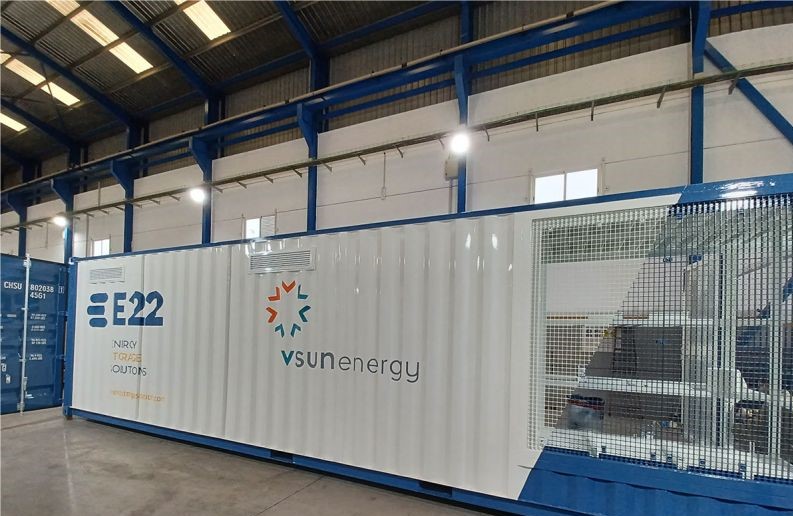VSUN Energy, a subsidiary of Perth-based mining company Australian Vanadium Limited (AVL), announced on Thursday it had signed a Memorandum of Understanding (MoU) with Sydney-headquartered developer North Harbour Clean Energy (NHCE) which will see the two companies collaborate on the development and installation of vanadium redox flow battery (VRFB) projects and vanadium electrolyte supply.
AVL managing director Vincent Algar said the non-exclusive MoU will allow VSUN to assist in the development of NCHE’s existing and future VRFB projects.
“In working together on VRFB projects, VSUN Energy and NHCE will have the opportunity to support the development of large projects through access to a company with strong funding capability,” he said.
“Jointly the companies aim to grow the Australian vanadium energy storage sector and do justice to this Australian-invented technology.”
VSUN has been pursuing the development of VRFBs for residential and commercial applications in Australia and the Asia Pacific region. The intent is to utilise high-purity vanadium pentoxide produced from AVL’s mining operation in Western Australia’s Murchison province and processing plant near Geraldton to supply the VRFB projects.
NHCE provided no specific details about its existing or proposed projects but said it is focused on the development of renewable energy and energy storage projects. It also said it is working with the University of New South Wales (UNSW) to optimise VRFB cell design.
NHCE managing director Tony Schultz said long-duration energy storage is in its infancy in the Australian market but has the potential to scale up quickly and the VRFB is a proven, commercialised product that can help complement the company’s use of pumped hydro energy storage.
“This technology is perfectly suited to long-duration stationary energy storage, has a number of advantages over alternative technologies and Australia has a unique opportunity given its invention of the technology in the 1980s, coupled with our large share of known vanadium resources,” he said in a statement.
NHCE, which is also part of a $270 million industry-backed clean energy research initiative being led by UNSW and the University of Newcastle, said it is interested in supply of vanadium electrolyte from AVL, product selection and project development support from VSUN, and the ability to position Australia as a centre of excellence and a key player in the global VRFB supply chain.
“We look forward to partnering with VSUN Energy to help accelerate the implementation of VRFBs at industrial scale into the Australian energy market, allowing the rapid uptake of renewable energy to continue,” Schultz said.
This content is protected by copyright and may not be reused. If you want to cooperate with us and would like to reuse some of our content, please contact: editors@pv-magazine.com.









1 comment
By submitting this form you agree to pv magazine using your data for the purposes of publishing your comment.
Your personal data will only be disclosed or otherwise transmitted to third parties for the purposes of spam filtering or if this is necessary for technical maintenance of the website. Any other transfer to third parties will not take place unless this is justified on the basis of applicable data protection regulations or if pv magazine is legally obliged to do so.
You may revoke this consent at any time with effect for the future, in which case your personal data will be deleted immediately. Otherwise, your data will be deleted if pv magazine has processed your request or the purpose of data storage is fulfilled.
Further information on data privacy can be found in our Data Protection Policy.